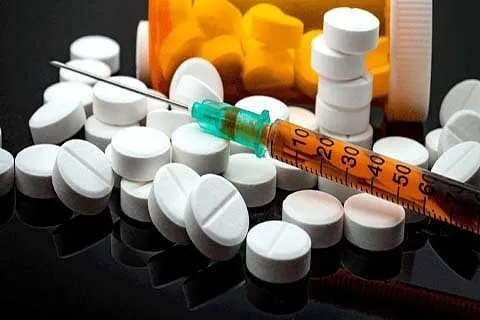Srinagar, Oct 9: Not a single long-term rehabilitation center has been set up in J&K despite the authorities declaring a war on drugs.
The doctors treating substance abuse struggle with relapses with the lack of facilities for long-term interventions and behaviour change. For 17-year-old Umar (name changed), the few weeks he spent at the Drug De-Addiction and Treatment Center at SMHS Hospital were no less than a war, a war with himself.
He and his father stayed with other inmates while he underwent treatment to break the habit of heroin that he had been snorting for two years.
However, just a month after returning home, Umar’s parents sold off the family’s assets to fund a six-month programme at a private rehabilitation centre designed to help people cope better with the withdrawal from heroin and other drugs and prevent relapses and remissions.
The family lost its income as the parents had to stay with the teenager.
For now, the family hopes a difference has been made in the life of their only son with the treatment programme.
However, hundreds in J&K, who could benefit from such long-term rehabilitation programmes and vocational set ups, find themselves at a loss, often falling back into the vicious trap of drugs.
Dr Yasir Hussain Rather who heads the Drug De-addiction Center at SMHS Hospital said rehabilitation and long-term residential treatment were effective forms of treatment for substance abuse and could help in making drug-free life a possibility for the afflicted.
“It is an essential but missing element in the treatment journey of addiction in Kashmir,” he said.
Dr Rather said that the rehabilitations were especially important in providing a pathway out of dependency and could help people quit drugs and get back on the healthy way of life.
Director General Social Welfare, Bashir Ahmed Dar said that two rehabilitation centers were planned to be set up in Kashmir under the National Action Plan for Drug Demand Reduction Programme.
“However, due to the pandemic their setting up has been delayed,” he said.
Dar said that in the coming months, the department would hold consultations with other departments and start putting these centers in place.
“We are aware of their role in helping address the situation vis-à-vis drugs,” he said.
In recent times, the abuse of heroin has become a monstrous issue in Kashmir with doctors reporting that of every 10 people reporting with substance abuse and addiction to hospitals, nine were injecting this lethal drug.
Heroin dependence is difficult to treat due to its serious withdrawal effects and a small overdose has often been seen to kill people, mostly youth.
The J&K government framed the first Drug De-addiction Policy of J&K a few years ago but the policy has not been able to make any tangible change due to slowdown brought in by the pandemic, a senior psychiatrist said.
GMC Srinagar psychiatrists said that the establishment of a rehabilitation center was proposed and discussed by the Health and Medical Education Department in 2019 but was yet to be established.
Dr Rather said such a center could help provide 24-hours on-site care and address the “temptations”. “These temptations and weak points contribute to addictive behaviour and by handling these, we can reduce the chances of relapse until resilience is built,” he said. Dr Rather said rehabilitation programmes give time and space to recover and reconnect.






